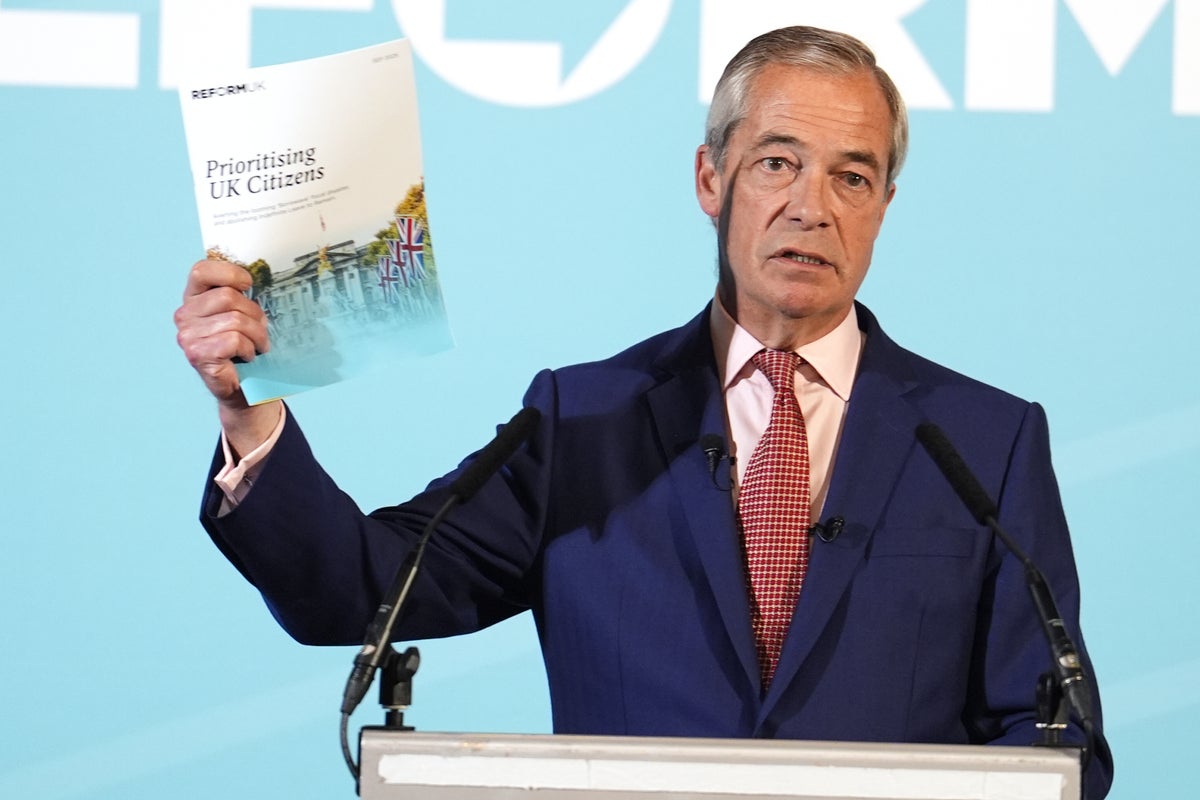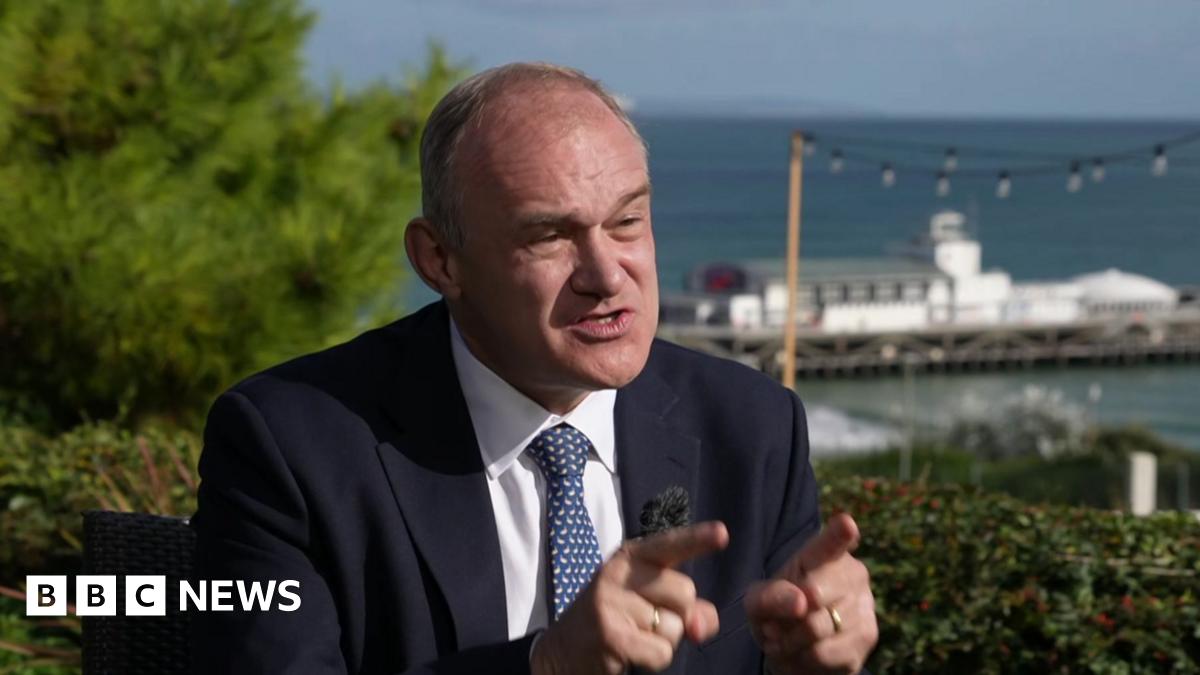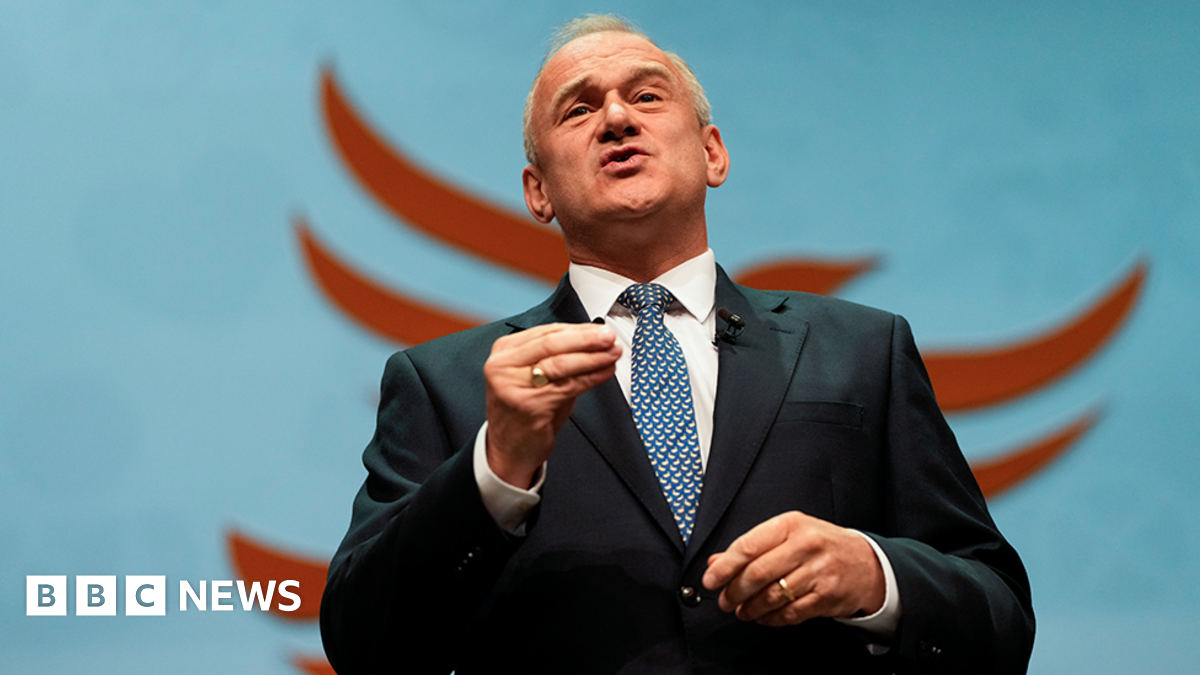Politicians tend to prefer different awkward euphemisms when they talk about the extreme right. “Divisive” has so far been the descriptor of choice for Keir Starmer.
But on Sunday the prime minister went further. It was racist, he said, unequivocally, for Reform UK to pledge to end indefinite leave to remain, a policy that threatens the lives of people long settled in Britain.
“I do think it is a racist policy,” he told the BBC. “I do think it’s immoral and it’s to be called out for what it is.”
Starmer’s words in his conference interview were the start of a bigger argument that he will make in his speech on Tuesday. Senior allies say it will be the most aggressively political speech of his leadership.
He will say he understands the decades of pressure that working people have been under, which has led many to lose faith in the system, but he does not believe that the country wants what Reform UK is offering.
Starmer and senior strategists think Reform’s policy on indefinite leave to remain has been an overreach. It is far beyond the pale for most voters, as polling shows.
To call out Reform’s policy as racist is quite the escalation from two months ago when No 10 declined to respond to several Reform proposals over the summer, including plans for the mass deportation of asylum seekers.
It is a description that many of his cabinet, MPs and the party grassroots will be relieved to finally hear him say so unequivocally – but a word that comes at great risk of attack from the right.
Aides say the accusation of racism is justified in this particular case because of who Nigel Farage would target with his draconian policy. They are not the mainly white EU citizens here with settled status, which Reform has hastily clarified that it would exempt.
But the policy would threaten to tear families apart who have long been settled, working and raising families in the UK. Some are in public sector jobs, which means they would never meet the high salary threshold that Reform intends to put on new rolling visas.
Some have never sought British citizenship because their birth nations do not allow dual citizenship. Farage said a Reform government would make all potential citizens give up their foreign citizenship rights.
skip past newsletter promotion Sign up to First Edition Free daily newsletter Our morning email breaks down the key stories of the day, telling you what’s happening and why it matters Enter your email address Sign up Privacy Notice: Newsletters may contain information about charities, online ads, and content funded by outside parties. If you do not have an account, we will create a guest account for you on Newsletters may contain information about charities, online ads, and content funded by outside parties. If you do not have an account, we will create a guest account for you on theguardian.com to send you this newsletter. You can complete full registration at any time. For more information about how we use your data see our Privacy Policy . We use Google reCaptcha to protect our website and the Google Privacy Policy and Terms of Service apply. after newsletter promotion
There is a high risk of mixed messaging here. Labour will try to land its own policy this week on making it harder for people to apply for indefinite leave to remain.
But it is the retrospective application of the new rule – meaning it could affect people who have lived in Britain for most of their lives – that Starmer believes most voters will see as fundamentally unfair.
Nevertheless, it is a big risk to use that R-word. One senior aide said they expected a roaring backlash of criticism from the rightwing media and opposition parties.
Starmer was careful in his interview to delineate his view of the policy and the party’s voters. But there is no naivety in No 10 about bad-faith actors who will say Starmer has now cast all Reform-curious voters as racist bigots. And there remains a worry among the more cautious Labour strategists about falling into Reform’s trap.
There is a nervousness, too, among some Labour aides about this newfound Starmer aggression. There are hard lessons to be learned from the two Democratic campaigns against Donald Trump – Hillary Clinton’s attack on the “deplorables” among Trump’s supporters and Kamala Harris’s insistence that democracy itself was at stake in 2024. Both claims were true but voters did not respond to them.
It is a fine balance that Starmer will try to strike in his speech on Tuesday – underlining that he knows and understands the rising anger in the country, as well as motivating Labour’s activists and progressive voters to get out and fight for their values.
[SRC] https://www.theguardian.com/politics/2025/sep/28/starmer-calling-reform-immigration-policy-racist-is-the-start-of-a-risky-wider-argument
 Visit the website
Visit the website






